La Copla
On the cusp of 20th century, amidst the cafés cantantes and cafés de marineros, bars with live music and those frequented by sailors, the more cosmopolitan ‘ambientes‘ [1] of Spain gathered to indulge in the bohemian lifestyle. One can only imagine the subversive appeal of such illicit places, with drinking and both flamenco and pasodoble performances, attracting thrill-seeking members of a conservative society to a risqué underworld. This vibrant scene gave birth to the Copla.
As with all partisan movements a counter-narrative develops. The lyrics of Ojos Verdes and Las cosas del querer (as discussed in my previous two articles), and of the majority of coplas, are made up of language, both direct and colloquial. They are filled with innuendo and double meaning to avoid censorship of forbidden or marginal themes: social division, gypsies, imprisonment, prostitution, good and bad luck, forbidden or hidden love and homosexuality.
The people sang because music would have kept spirits high during the tragic 1930’s. The pain and suffering was well portrayed in some of these lyrics, such as: “Gypsy woman wandering across the world, singing and dancing, singing I seek relief of my grief” [2].
Suspiro de España, Sigh of Spain, may have been the first copla ever written [3]. This was performed in the film of the same name by Spanish singer and actress Estrellita Castro (1908-1983). The lyrics reflected the nostalgia of those forced to go into exile during the Spanish Civil War and of their love for their homeland. To listen to the version by Estrellita Castro please click here .The song starts at 2.05 minutes.
The copla La Diputada, The Congresswoman, first sung by Amalia Molina in 1932, is a clear example of strong feminist lyrics. To listen to the song: please click here [4]. Please see below a fragment of the lyrics in Spanish and English:
Llegó la hora del feminismo,
y como siempre fui avispada,
y en todas partes me llevo algo,
me llevé el acta de diputada.
En el congreso con Luis de Tapía,
estoy actuando de adalid,
¡Viva el divorcio! ¡Vivan mis manos!
Qué aún no han cosido, ¡ni un calcetín!
— —
It has arrived the time for feminism,
and as always I was shrewd,
and as everywhere I achieve something
I took the role of deputy.
At the congress with Luis Tapia,
I am acting as champion,
Long live the divorce! Long live my hands!
They have not yet sewn, not even a sock! [5]
The radio was central to popular post-war entertainment, also post-war the Copla was the only genre that pushed the boundaries of what was permissible to sing, touching on the thorniest issues as no other genre did at that time.
It is noteworthy that whilst coplas appeared to have sprung from the bohemians and Republicans of Spanish society, the Franco propaganda regime would appropriate those symbols, which Spanish people could identify as Republican, and turned them into the “official” Spanish popular culture.
Concha Piquer (1906-1990) one of the most renowned and talented interpreters of coplas is associated with the Franco regime. Some people nowadays unfairly only see the coplas as the official music of the Franco regime in Spain and therefore as something to reject.
Three of the most representative authors of coplas are Rafael de León, Manuel López Quiroga and Antonio Quintero, together known as the Trio Quintero. Rafael de León, considered to be a poet of the 1927 generation, wrote approximately 5000 coplas with Antonio Quintero and Manuel López Quiroga and 8000 in total.
Many others are worthy of mention, amongst them Antonio Machado, Federico García Lorca, Violeta Parra and Jaime Dávalos, to name a few of the Spanish and Latin American artists who have written unforgettable coplas.
Coplas are the voice of the Spanish people at a significant time in their history, regardless of whether or not coplas were Republican born or fostered by the Franco regime I am of the opinion that they belong to the people and , as Manuel Machado (1874-1947) says:
Until people sing the coplas, there are no coplas, and when the people sing them, then nobody knows the author. Such is the glory, Guillen, of those who write songs, to hear people say that no one has written them. You hope that your coplas end with the people, despite that they will no longer be yours and will belong to everybody else. That is when you melt your heart in the popular soul. What is lost of recognition is gained in eternity [6].
September 2015
This is a follow up to two previous articles: The Things of Love and Green Eyes, published in August 2015.
— —
Footnotes
[1] Ambiente: ambience, set of characteristics of a social group.
[2] Free translation from: Gitana, gitana, gitanilla errante cruzó el mundo entero, cantando y bailando buscó en las canciones alivio a mi duelo.
[3] Suspiro de España was written by by Antonio Álvarez Alonso and composed by Juan Álvarez
Alonso.
[4] La Diputada was written by De Carrere and Font de Anta.
[5] Fragment from the copla La Diputada, free translation.
[6] Free translation from the poem:
La copla
Hasta que el pueblo las canta,
las coplas, coplas no son,
y cuando las canta el pueblo,
ya nadie sabe el autor.
Tal es la gloria, Guillén,
de los que escriben cantares:
oír decir a la gente
que no los ha escrito nadie.
Procura tú que tus coplas
vayan al pueblo a parar,
aunque dejen de ser tuyas
para ser de los demás.
Que, al fundir el corazón
en el alma popular,
lo que se pierde de nombre
se gana de eternidad.
To listen to La copla of Manuel Machado recited by Vicent Camps, please click here. Only available in Spanish without subtitles.
5 responses to “La Copla”
Trackbacks / Pingbacks
- - 31/01/2016
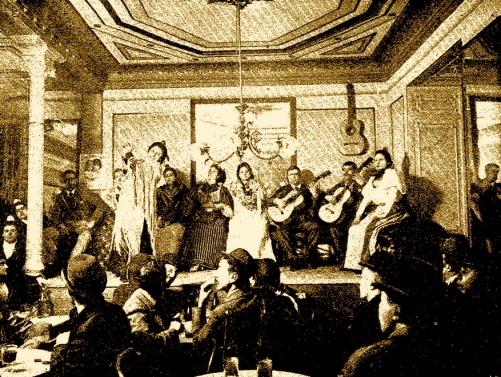
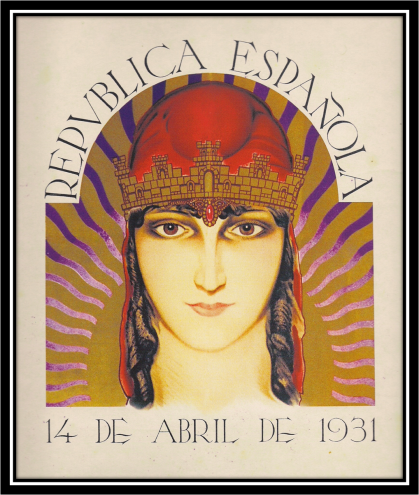
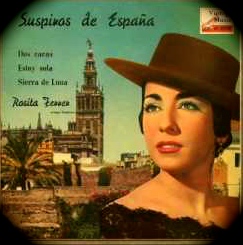
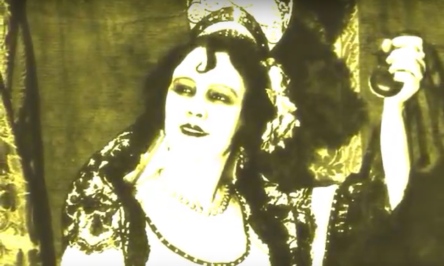
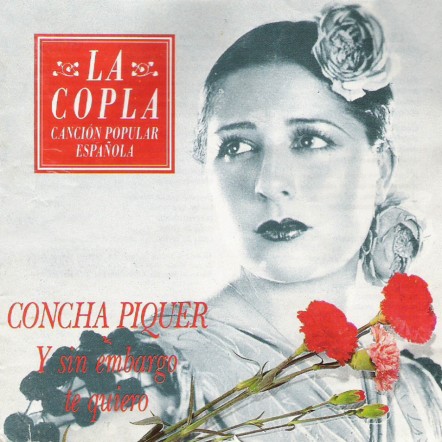
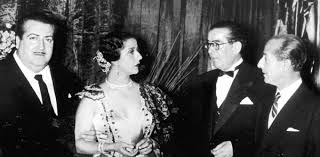
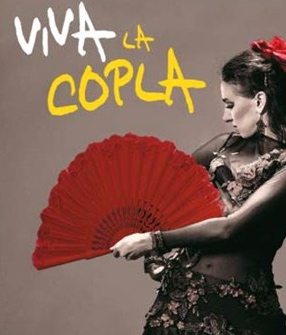
You have a very interesting blog.
LikeLike
Thank you Maria. Adrián
LikeLike
Great post 🙂
LikeLike
Thank you Leyla!
Adrián
LikeLiked by 1 person